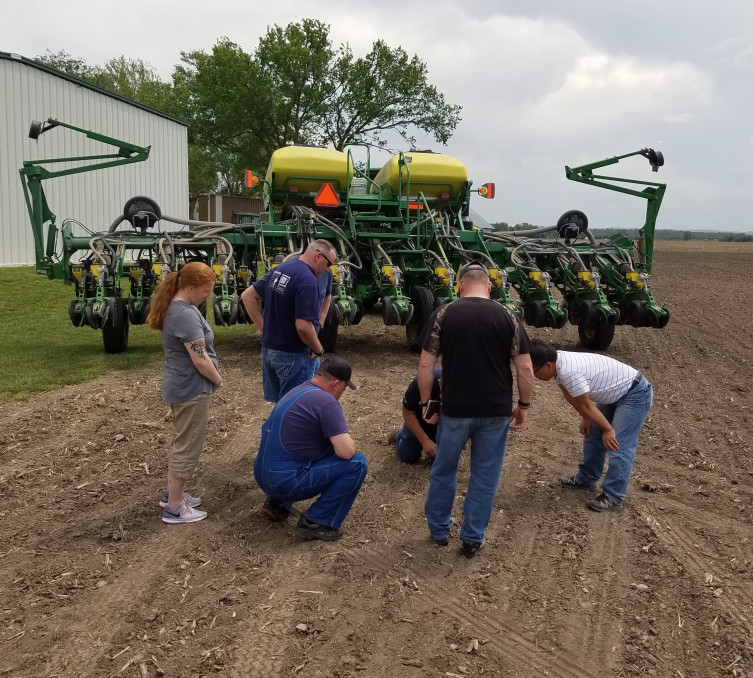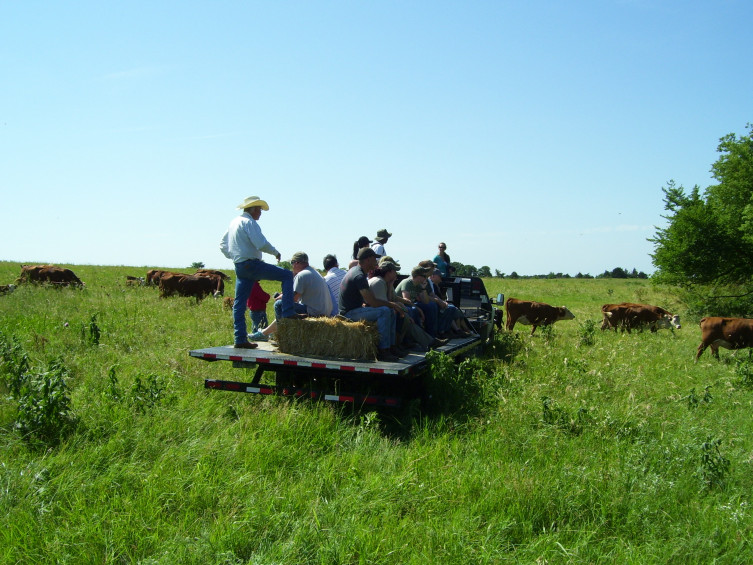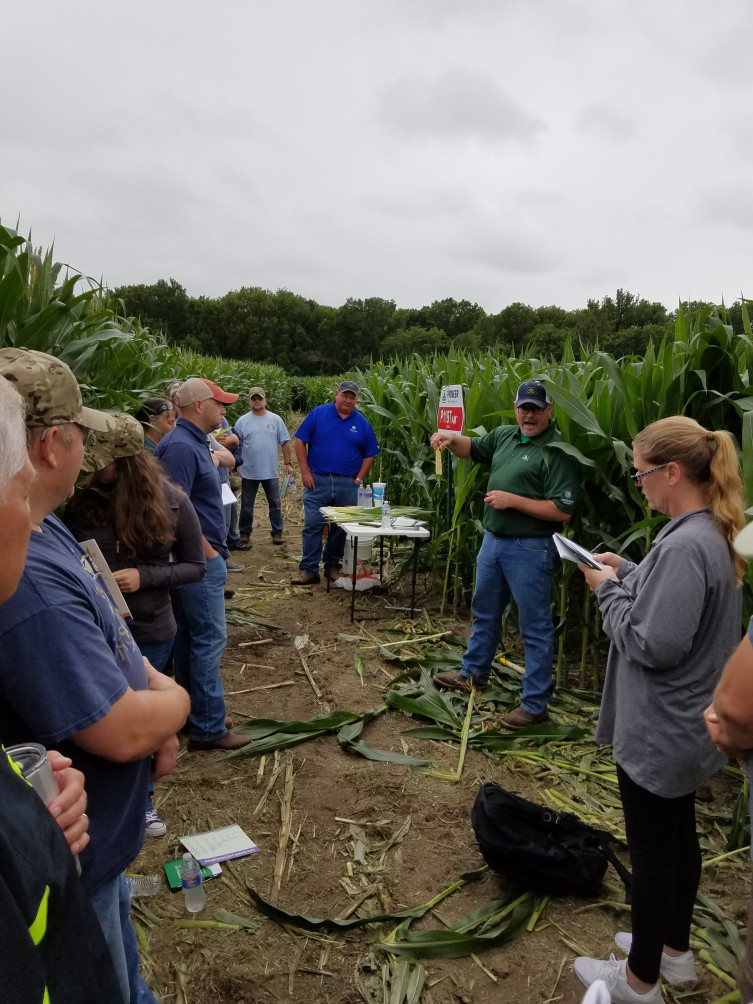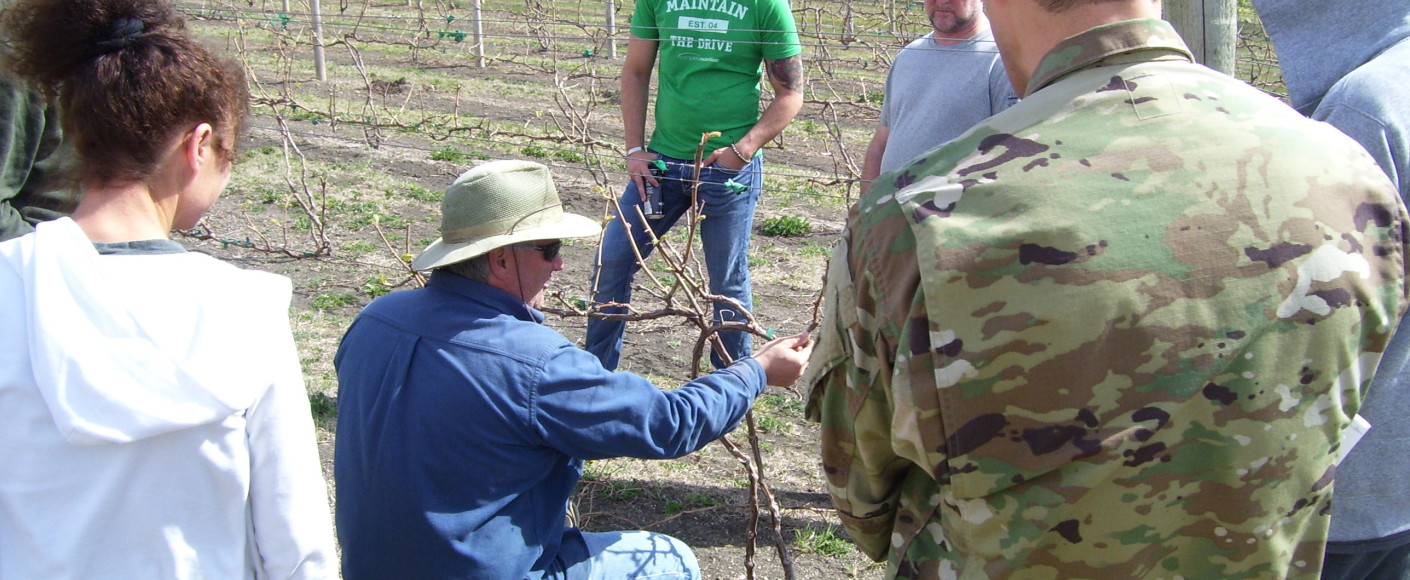SAVE-ing Veterans’ Lives
“This saved my life.”
Gary LaGrange hears that a lot at the Servicemember Agricultural Vocation Education farm — fittingly called the “SAVE Farm” for short. The SAVE Farm provides a healing environment where veterans learn the ropes of farming to prepare for a career in agriculture. The farm helps them focus on life after the military, while providing a safe place to deal with traumatic experiences from their service.
Having served in the military with tours in Vietnam and Laos, Gary, now a retired colonel with the Army, knows firsthand the memories and experiences haunting many service members today.
“I had some of the same ghosts that young men and women bring back from Iraq and Afghanistan,” he said.
He wanted to help.
When Gary’s daughter Shari, a clinical psychologist who specializes in treating patients with post-traumatic stress disorder (PTSD), trauma and suicidal ideation, approached him with the idea of creating a farm where veterans could learn the trade, Gary was intrigued.
Shari thought the work involved — being in nature, caring for animals, raising crops, protecting soil — could be therapeutic for transitioning service members.
They explored the idea of creating a small farm where veterans could learn about the business of farming and experience what life on a farm is like. They started training soldiers at Gary’s bee farm and noticed a connection.
As they studied the occupational landscape and met with local and national experts in agriculture and veterans affairs, they were stunned.
- An estimated 200,000 service members will transition out of active duty military each year for the next four years.
- There are currently about 1,500,000 post 9-11 veterans. A poll conducted by the Department of Labor in 2014 found 40 percent of veterans were interested in farming.
- More than 6,000 veterans commit suicide each year.
- The average age of farmers in the U.S. has been steadily increasing and is currently 57.5 years old, with 34 percent of farmers 65 and older.
- About 63 percent of family-owned farms are estimated to be in the last generation, making succession planning uncertain.
- How to feed the world’s growing population is one of the top concerns in the agricultural community. Today’s unfavorable business environment for farmers makes the issue even more challenging.
“We discovered the need was far greater than we expected,” Gary said. “There’s a great need to develop new farmers.”
They started to think bigger. How could they help more veterans find meaning and meaningful work after their service?
They came up with the idea to create a residential training program with access to on-site mental healthcare. The farm would serve as a model and could expand to other areas around the country. The SAVE Farm, a charitable organization, was born.
 Working with local and national partners, they’re designing a scalable, sustainable prototype in Manhattan which includes agricultural training as well as behavioral health and other support. Their goal is to train 100 new farmers each year.
Working with local and national partners, they’re designing a scalable, sustainable prototype in Manhattan which includes agricultural training as well as behavioral health and other support. Their goal is to train 100 new farmers each year.
For the past three years, employees and volunteers have been working on the farm to get it into shape. The SAVE Farm currently has 320 acres, which includes beekeeping, livestock (rams, goats, poultry, hogs), horses and plots of wheat, corn, sorghum, soybeans and alfalfa.
 “The farm is a comprehensive training model. We teach students how to harvest, plant, maintain the soil, and also help them understand the difference in scale of various operations,” Gary said. “It’s intensive — a little classroom work with a whole lot of hands-on training.”
“The farm is a comprehensive training model. We teach students how to harvest, plant, maintain the soil, and also help them understand the difference in scale of various operations,” Gary said. “It’s intensive — a little classroom work with a whole lot of hands-on training.”
They also have orchards and grow produce. They’re planning to expand specialty crop areas for hydroponic plants and lavender, which grows well in Kansas.
 Forestry and cotton aren’t in the Kansas model, but other specialty fields could be incorporated depending on the location. Gary’s already got his eyes on starting similar farms in Nebraska, Minnesota, Iowa and Missouri.
Forestry and cotton aren’t in the Kansas model, but other specialty fields could be incorporated depending on the location. Gary’s already got his eyes on starting similar farms in Nebraska, Minnesota, Iowa and Missouri.
Although Gary and Shari were the initial drivers behind the project, Gary stressed the village behind the effort to bring the idea to life: veterans, volunteers, employees, as well as organizations like Kansas State University, Cloud County Community College, Manhattan Area Technical College, USDA, VA, plus corporations — all have helped contribute to the vision.
“There are a lot of dimensions to it, a lot of moving pieces as we build this from scratch,” Gary said. “We have a robust board that’s working to make all this happen.”
The final design includes living areas for students and their family members, classrooms, a chapel, dining facility where they cook food grown on the farm and a transition center which houses free behavioral healthcare for those who need it. There will also be other training components such as welding and woodworking. Although the vision isn’t fully realized, the first class started their 11-and-a-half-month training in January 2019. During that time, the staff has seen tremendous professional and personal growth in participants.
Gary said it’s typical to hear students tell staff members, “You have saved my life.” That’s what the SAVE Farm is all about.
“It’s a wonderfully heartening thing to see,” Gary said. “There’s so much improvement. It’s absolutely amazing. It exceeds all expectations.”
More About
- The SAVE Farm is currently accepting applications for its next class starting in January. Although their mission is to help veterans, the class is open to anyone interested in farming.
- The program accepts some military benefits such as the GI Bill and tuition assistance to help make it possible for interested veterans to participate. They work with VA rehab programs and provide scholarships to support qualified students.
- They also host weekly field trips from March to November, which give participants a glimpse at different types of farming and a good idea of what farming is about overall. Those tours are also open to anyone interested in farming, including active duty soldiers.
For more information, visit their website or follow them on Facebook.

